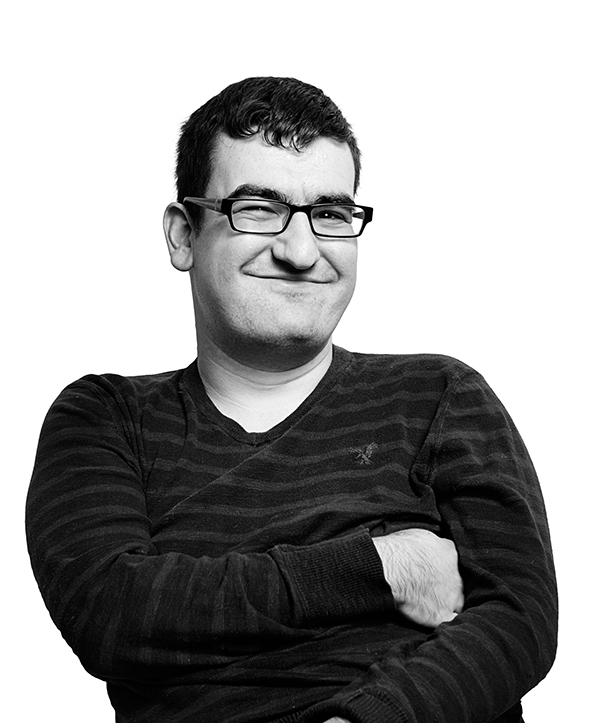Anthony Barrett is finishing a game of Math Blaster on the computer in his bedroom – it’s a big part of his morning. He greets me at the door, sort of, because his mom asked him to, then he quickly retreats. The game routine is important to him – he has a thing for numbers.
I join Anthony’s mom, Deborah Barrett, and Mike Hamm at the kitchen table. Each has a mug, and the two chat easily. Weak sunlight suffuses the kitchen, its glass bricks and lemony paint amplify it, tricking you into thinking
it’s nicer outside than it really is. At the table, Deborah and Mike are talking about what Mike is to Anthony.
“I usually say something like ‘private support worker,’ but that’s not exactly it,” says Mike. He is 26, with a tidy, ginger beard and a nose that turns up slightly, making him look young despite the facial hair – a little bit like Dominic Monaghan in The Lord of the Rings.
“No,” Deborah says. “There’s an element of condescension to the notion of ‘support.'”
Hamm nods. “And ‘assistant’ isn’t really it, either.”
“I like ‘community access worker,'” Deborah says. “That really is what you do; you allow Anthony to access the community more effectively.”
Anthony, 24, has classical autism, the hallmarks of which are impaired communication and social skills, and narrow or limited interests. Anthony doesn’t look you directly in the eye, at least not often, nor for long. His fine and gross motor skills are not finely tuned. He makes odd vocalizations that can unnerve people. He may or may not answer questions or respond to instructions. He loves going to new places, Deborah says, and he’ll do an exploratory circuit of a space to check things out. She demonstrates, pacing slowly around her kitchen island. A quarter-century of living with Anthony has made her able to mimic the way he moves. Deborah is 60, attractive and polished in a dark turtleneck and conservative scarf. She is as eloquent as Anthony is not.
